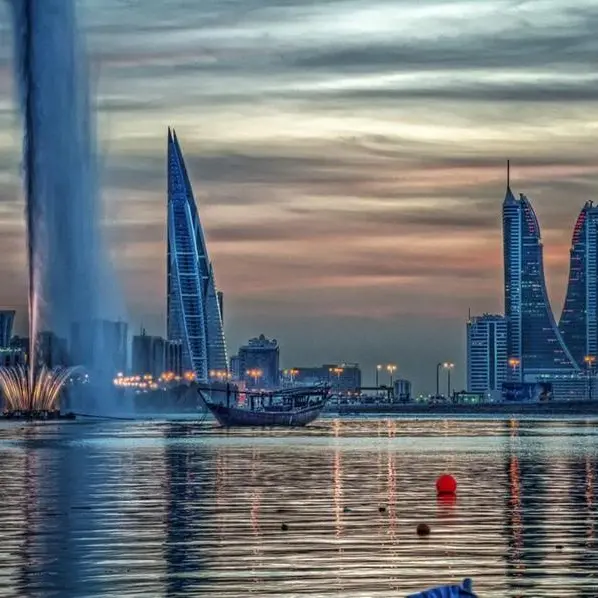Islamic finance and socially responsible investing, or SRI, are two of the most dynamic areas of the 21st Century financial landscape, but although they have much in common they don’t always work as closely as they might, and bridging this gap could present an opportunity for both financial approaches.
Modern Islamic finance was born in 1976 with the declaration by Shariah scholars and economists at the First International Conference on Islamic Economics in Makkah that all types of interest were forbidden. The rapidly expanding global industry which developed from this statement, where finance is provided on a profit and loss-sharing basis rather than by charging interest, is today valued around $2.44 trillion.
SRI integrates environmental, social and governance (ESG) considerations into financial decision-making. The movement’s formative years were in the 1960s and 1970s, when investors were persuaded to exclude companies that supported racial segregation in the United States or apartheid in South Africa, for example, or companies that supplied weapons such as napalm during the Vietnam War.
The first SRI conference was held in the U.S. in 1989 and this industry too is growing fast – particularly since the global financial crisis of 2008-09 made more people aware of the ramifications of unprincipled financial practises. Global SRI assets under management now total around $20 trillion, or a quarter of all professionally managed assets.
Shared commitment to ethical values and social objectives
What Islamic finance and SRI share most is an obvious commitment to ethical values and broader, socially beneficial, objectives beyond merely financial outcome, and that both exclude what are considered unethical businesses and practices. But there is a difference in approach.
SRI has less detailed rules to follow than the Shariah-based Islamic financial system: rules such as the prohibition of interest, or riba, or the drawing of any contract where uncertainty or deception, or gharar, plays a part, such as in derivative contracts.
However, the two systems have much to learn from each other. Islamic finance in its modern incarnation has been around longer than SRI and during that time has developed sophisticated techniques to avoid ethically problematic practises such as interest that SRI businesses could learn from.
Non-Muslim investors increasingly drawn to Islamic finance
Non-Muslim millennial investors are becoming increasingly drawn to Islamic finance since the financial crisis, particularly its prohibitions of riba and gharar, and SRI products incorporating techniques to avoid these could prove as popular as ESG considerations. Similarly, Islamic finance’s shunning of certain halal practices such as gambling, pornography or the production of weapons of mass destruction may be equally as attractive to the non-Muslim investor.
However, particularly given the relative sizes of the two industries, it may be that Islamic finance has more to learn from SRI, whose exponential growth shows that a focus on ESG issues is increasingly attractive to millennial investors and may help to spur further growth in Islamic finance.
Although Shariah-based finance is less explicitly concerned with environmental, social and governance matters than SRI – there is no specific injunction against businesses with questionable social or environmental practises. However, Islamic finance’s focus on ‘transactional equity’, whereby stronger parties in a transaction are prevented from taking advantage of weaker parties, and its prohibition of interest-based debt bring with it strong social outcomes.
Also, such a fundamental tenet of Islam as man’s stewardship over God’s creation makes the environment a concern to Islamic finance, and throughout the Quran and hadiths there are plenty of injunctions to care for the environment and society.
Examples of collaboration provided by green sukuk
One example of the crossover of SRI investing with Islamic finance is the green sukuk, or Islamic bonds, issued in Malaysia last year. The RM250 million ($59 million) sukuk was issued by Malaysia-based renewable energy and sustainable technology investment firm Tadau Energy to finance the construction of solar plants.
Following the success of this, Quantum Solar Park Malaysia launched the world’s largest green SRI sukuk — RM1 billion — last October to fund the construction of Southeast Asia’s largest solar photovoltaic plant.
This type of crossover of SRI and Islamic finance is growing and points to closer collaboration in the future. Other recent green sukuk include a PKR100 billion ($813 million) issue in Pakistan to partially finance the Neelum-Jhelum Hydropower Project, and the intention of the National Central Cooling Company (Tabreed) in the United Arab Emirates to issue up to $1 billion in sukuk to expand its energy-efficient and environmentally friendly cooling services.
The Global Islamic Economy Summit (GIES) is the world’s largest and most comprehensive forum dedicated to the Islamic economy. It is organised by the Dubai Chamber of Commerce and Industry and Dubai Islamic Economy Development Centre (DIEDC) and strategically supported by Thomson Reuters.
Any opinions expressed here are the author’s own.
Disclaimer: This article is provided for informational purposes only. The content does not provide tax, legal or investment advice or opinion regarding the suitability, value or profitability of any particular security, portfolio or investment strategy. Read our full disclaimer policy here.
© Opinion 2018





















